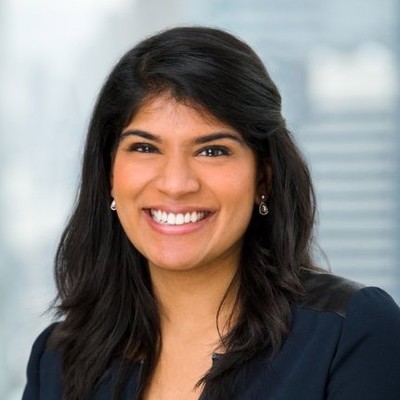Mitigating Greenwashing Litigation Risks with Ramya Ravishankar
Concepts: ESG, ESG Reporting, Greenwashing, Greenwashing Litigation, Risk Mitigation, Misleading Claims, Sustainability Commitments
Companies are grappling with how to market the eco-friendly, people friendly, and animal friendly characteristics of their products and services, while also not getting in trouble with the law. Some have learned this the hard way. Some have wisely consulted experts. (That's foreshadowing.)
ESG – or Environmental, Social and Governance – reporting and so-called greenwashing litigation have implications for a wide range of stakeholders. Companies face significant financial and reputational risks, while investors, regulators, advocacy groups, and consumers all have an interest in ensuring the accuracy and transparency of ESG information.
Last year the SEC adopted amendments to the Investment Company Act with the “Names Rule,” which addresses fund names that are likely to mislead investors about a fund’s investments and risks.
On the consumer side, the FTC has been on the case as it stalks misleading advertising claims. Violations have real consequences. In 2022 the FTC reached multimillion dollar settlements with store chains Kohl’s and Walmart over claims that certain products were eco-friendly and made from bamboo, when they were really made from rayon.
More recently, a class action was filed in federal court in New York over the "carbon neutral" branding on bottled water.
But there are some important court decisions our guest wants you to know about, involving shoemaker AllBirds and beauty products company Sephora.
She is Ramya Ravishankar, General Counsel & Corporate Secretary of the HowGood company, an independent research firm that helps the world’s largest food brands meet their sustainability commitments. Ramya is a former environmental biologist turned attorney who is – as you will soon hear -- passionate about the intersection of food and sustainability. Previously, Ramya was Associate General Counsel at Bowery Farming – producer of pesticide free lettuce, other leafy foods, and herbs. Before that she was a regulatory enforcement associate at Skadden Arps. Ramya earned her J.D. from Columbia Law School in New York and a B.S. from Queen’s University in Ontario, Canada.
Also, she is awesome! I think you will enjoy the interview.
*******
This podcast is the audio companion to the Journal on Emerging Issues in Litigation. The Journal is a collaborative project between HB Litigation Conferences and the vLex Fastcaselegal research family, which includes Full Court Press, Law Street Media, and Docket Alarm.
If you have comments, ideas, or wish to participate, please drop me a note at Editor@LitigationConferences.com.
*******
Tom Hagy
Litigation Enthusiast and
Host of the Emerging Litigation Podcast
Home Page
LinkedIn

